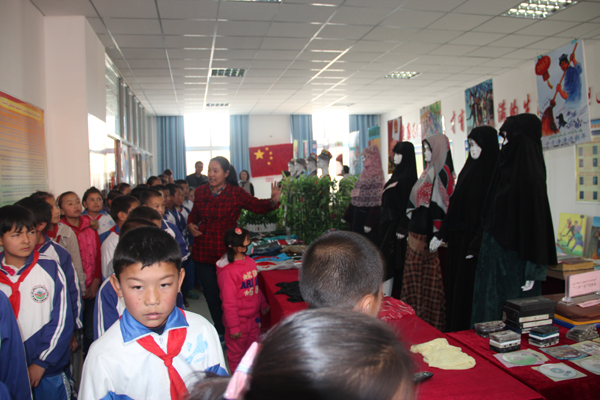Forbidding Children from Participating in Religion is Nothing New in East Turkestan

October 18, 2016
Last week the government of the Xinjiang Uyghur Autonomous Region announced a new education law that will come into force on November first in the region’s state media (for full Chinese text, see here). The most widely reported aspect of the new law was the provision that parents and guardians are forbidden to “encourage or force” their children to participate in religious activities and saying that any “person or group” has the right to put a stop to such activities and report the parents. Those who are reported can have their children taken away and sent to “specialist schools for rectification.”
This law does indeed have disturbing implications, encouraging citizens to spy upon one another and increasing intrusion of the state into familial relationships. The law encourages reporting of parents who push their children into “extremism, terrorism and underground scripture studies,” lumping legitimate religious expression together with extremism, thereby casting the widest possible net. This is in line with previous laws encouraging people to report one another, such as this one listing 53 different proscribed behaviors.
Unfortunately the education law is not a departure from policies that have existed for decades. In 1993 the “Implementing Measures of the Law on the Protection of Minors” outlawed parents and guardians from allowing children to engage in religious activities, and signs prohibiting the entrance of those under 18 years of age are posted outside every mosque in East Turkestan. The regulation was updated in 2009, restating that parents were not permitted to “lure or force” children to engage in religious activity. The national level Law for the Protection of Minors contains no such clause, suggesting that these regulations are aimed specifically at Uyghurs.
It should be noted that these laws seem to contradict the rights laid out in the Chinese Constitution, as well as Regional Ethnic Autonomy Law and the Universal Declaration of Human Rights which China as a member of the General Assembly is obliged to observe. Children elsewhere in China, including Muslims, are permitted to engage in legally sanctioned religious activity. There is some evidence that restrictions elsewhere are tightening, at least on an informal basis; take for instance the government of Gansu reiterating that religion was not permitted in schools after a video of a Hui girl reciting the Koran went viral and prompted an Islamophobic backlash online. For more on restrictions on freedom of religion please see our report “Sacred Right Defiled: China’s Iron-Fisted Repression of Uyghur Religious Freedom.”
Schools are an important site for indoctrination across China, and in XUAR this takes on anti-religion message that is pointedly related to national security. The dangers of religious activity are taught in XUAR schools beginning at the elementary school level, at least in schools with mostly minority students. On the 12th of October a meeting was held in Urumqi to discuss the morality and ideology curriculum, attended by leaders from the education departments not only of XUAR but also Inner Mongolia, Guangxi, Qinghai, Hainan and Guizhou- all provinces with significant minority populations, suggesting that the experience of the XUAR education department perhaps holds lessons for them.
